Offering ritual in the traditional Khao Phansa Festival of Laos. Photo: Xuan Tu/VNA reporter in Laos
At Simeuang Pagoda in Vientiane, one of the most famous temples in Laos, the ceremony was solemnly held from early morning. Amidst the chanting, people respectfully offered flowers, candles and offerings to the monks, opening the rainy season, when monks spend three months practicing meditation, studying scriptures and cultivating virtue.
Monk Phongsavath Matmanivong of Simueng Temple said Khao Phansa is one of the important traditional ceremonies of Laos, which takes place every year during the rainy season. On this occasion, many people come to the temple to make merit, offer candles, Buddha statues and perform the ritual called “Buddha bathing in the rain”.
According to monk Phongsavath, this is also the time when monks begin their rainy season retreat, do not leave the temple and must stay in the temple to study and live for 3 months, from August to November (according to the Lao Buddhist calendar). This tradition originated from the time of the Buddha. When the Buddha and the monks went to propagate the Dharma during the rainy season, they could accidentally step on young rice fields, grass or insects, affecting people's livelihoods and accidentally injuring or killing many creatures. Therefore, the Buddha stipulated that during the rainy season, monks are not allowed to go out, but must stay in the temple to practice. Since then, this custom has been maintained and has become a beautiful cultural feature of the Lao people to this day.
Monk Phongsavath added that Khao Phansa reflects the faith and belief of Lao people, believing that this is an opportunity for them to do good deeds, and at the same time, an opportunity to educate their children about the tradition of offering, maintaining morality and a healthy lifestyle. During this time, most Lao people stop drinking alcohol, do not smoke and do not go out at night. Grandparents and parents also take this opportunity to teach their children, take them to the temple to worship Buddha, and chant sutras with monks.
A family brings their grandchildren to perform the ritual of offering offerings and praying for their ancestors and relatives at the Khao Phansa Ceremony. Photo: Xuan Tu/VNA reporter in Laos
Many families also send their children and grandchildren to the temple on this occasion so that they have a sense of discipline, follow the rules and abstain from bad things. If people live loosely, without a framework, do not know how to protect themselves, it can easily lead to bad consequences, first of all, property damage, then health damage and more seriously, it can even endanger their lives. Therefore, abstaining and protecting yourself during the 3 months of Phansa is the way to protect yourself, your family and society.
Present with her relatives since morning, Ms. Piya Phonsena, a resident of the capital Vientiane, said that since childhood, her parents have taken her to the temple. Every year, during the Khao Phansa season, she goes to the temple to make offerings and pray for her grandparents, parents, relatives and deceased loved ones. Here, when she listens to the teachings of the temple, she always feels warm, peaceful and has faith in life in the future.
Ms. Piya believes that this is a good traditional ceremony of Laos and she wants to teach her children and grandchildren, the next generations to preserve the good cultural traditions of the nation and to respect Buddhism, respect the elderly, as taught and passed down by the Buddha and her grandparents and parents.
Teaching Buddhist scriptures and moral teachings at the traditional Khao Phansa ceremony in Laos. Photo: Xuan Tu/VNA reporter in Laos
From a ritual originally reserved for monks and nuns, Khao Phansa has now become a part of the spiritual life of the entire Lao society. Many people voluntarily follow the commandments of Buddhism not only because of their beliefs, but also as a way to live a better, more virtuous life. Through this, the festival not only demonstrates the deep faith of the Lao people in Buddhism, but also contributes to uniting the community, spreading the spirit of truth, goodness and beauty in daily life.
Laos is a country with more than 90% of the population following Buddhism, therefore, Buddhism is not only a normal religion, but also a core part of the cultural and spiritual life of the Lao people. Khao Phansa Festival is a vivid demonstration of the connection between Buddhism and Lao society, contributing to the unique cultural identity of the Land of a Million Elephants in the heart of Southeast Asia.
According to VNA
Source: https://baoangiang.com.vn/net-dep-van-hoa-trong-nghi-le-phat-giao-truyen-thong-cua-nguoi-dan-lao-a424087.html


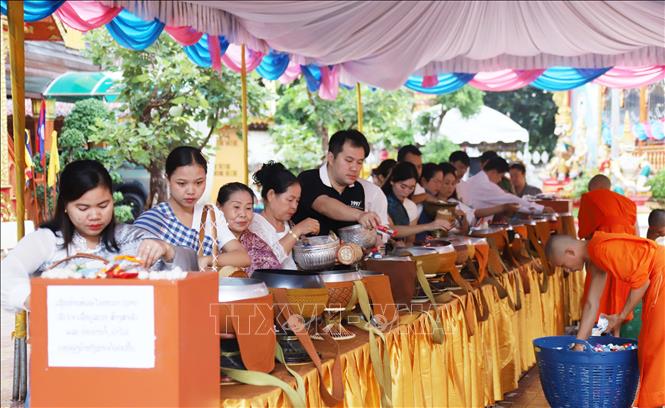
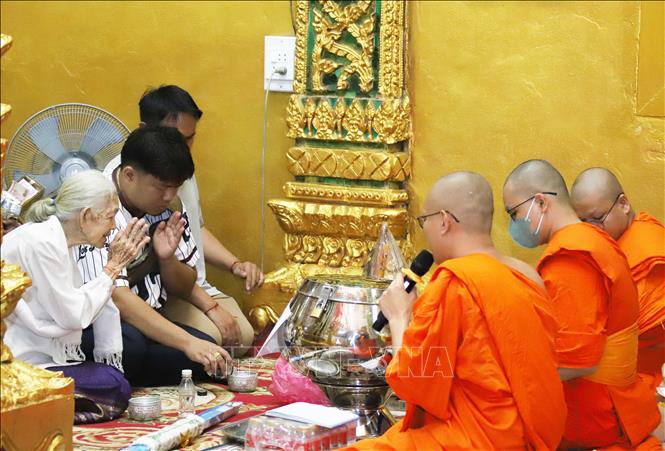
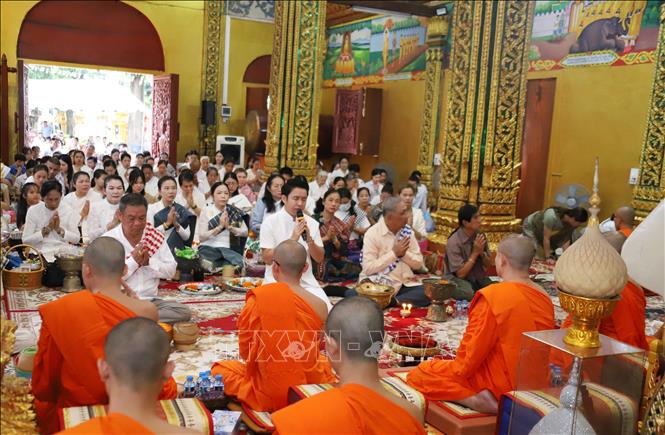
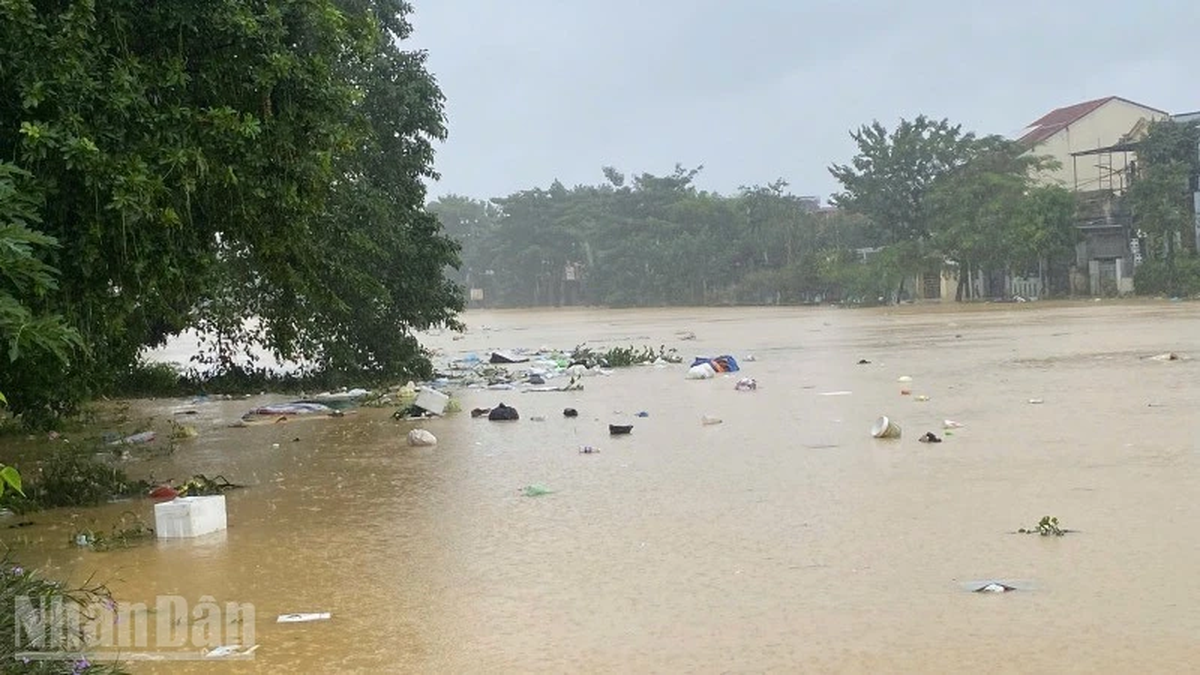

![[Photo] Prime Minister Pham Minh Chinh chaired a meeting to evaluate the operation of the two-level local government model.](https://vphoto.vietnam.vn/thumb/1200x675/vietnam/resource/IMAGE/2025/10/29/1761751710674_dsc-7999-jpg.webp)

![[Photo] Prime Minister Pham Minh Chinh chaired a meeting to discuss solutions to overcome the consequences of floods in the central provinces.](https://vphoto.vietnam.vn/thumb/1200x675/vietnam/resource/IMAGE/2025/10/29/1761716305524_dsc-7735-jpg.webp)
![[Photo] Hue: Inside the kitchen that donates thousands of meals a day to people in flooded areas](https://vphoto.vietnam.vn/thumb/1200x675/vietnam/resource/IMAGE/2025/10/29/1761738508516_bepcomhue-jpg.webp)
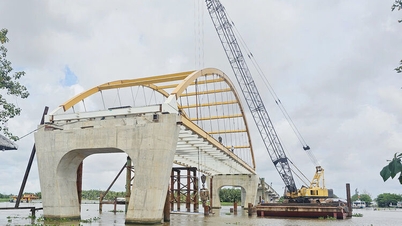
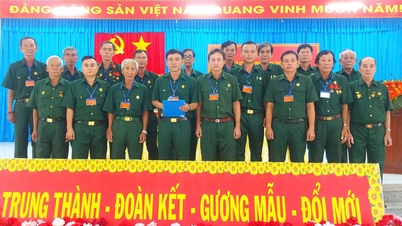
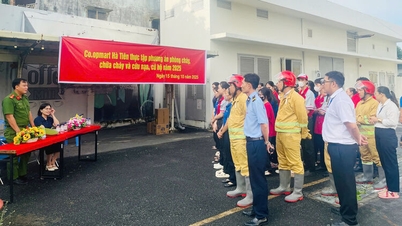
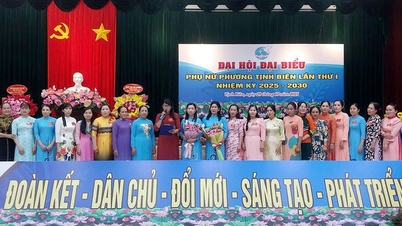
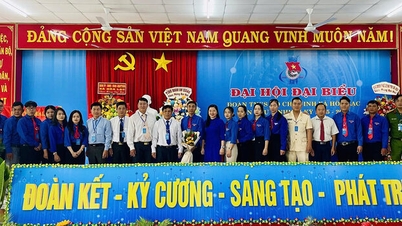
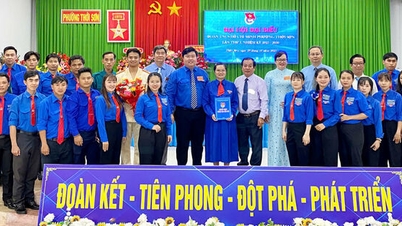
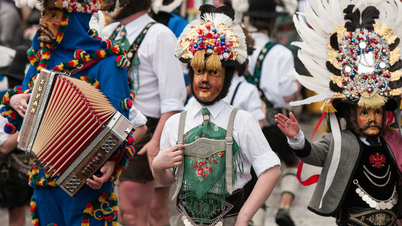

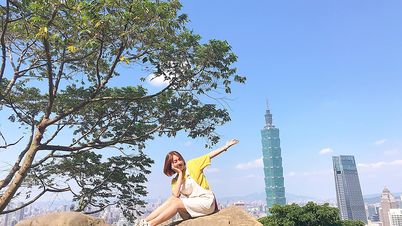
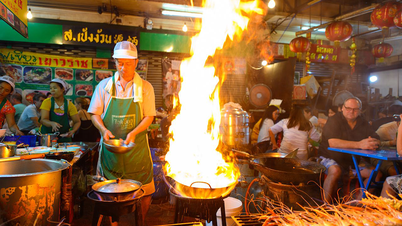

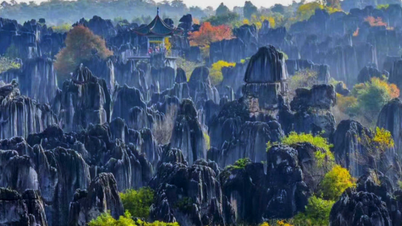
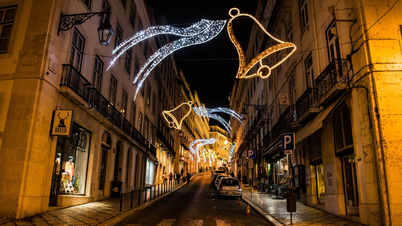




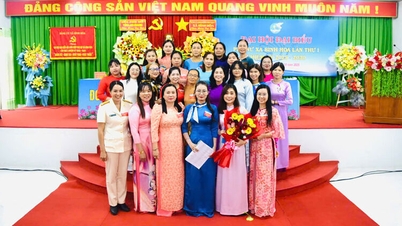
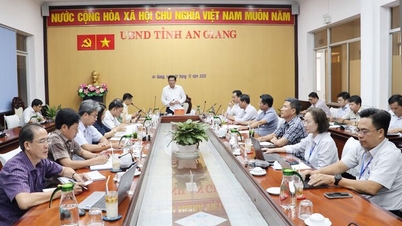
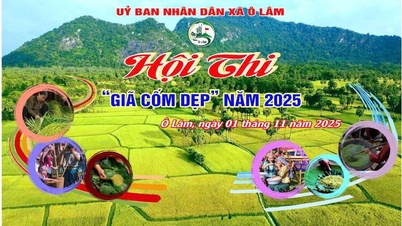
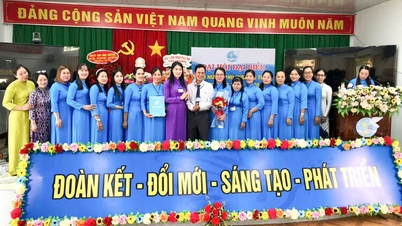
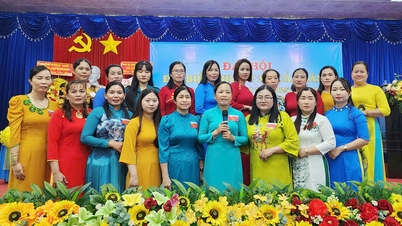
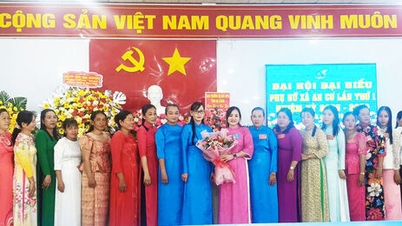



































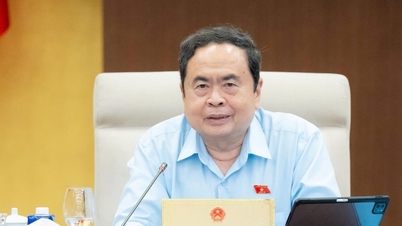

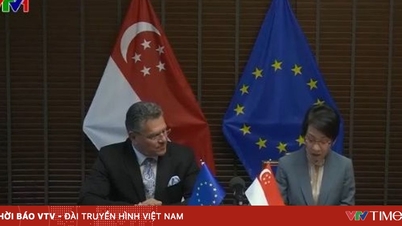
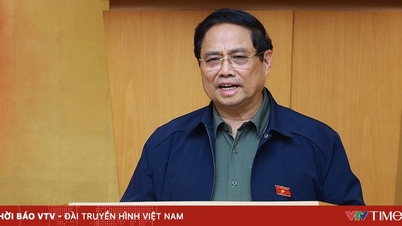
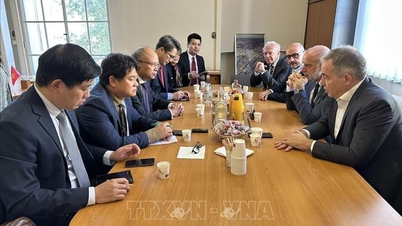

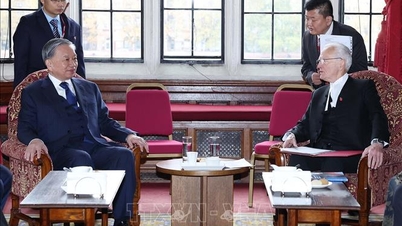
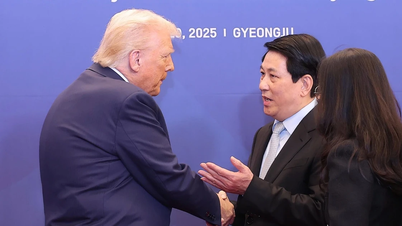



![[Live] Concert Ha Long 2025: "Heritage Spirit - Brightening the Future"](https://vphoto.vietnam.vn/thumb/402x226/vietnam/resource/IMAGE/2025/10/29/1761743605124_g-anh-sang-am-thanh-hoanh-trang-cua-chuong-trinh-mang-den-trai-nghiem-dang-nho-cho-du-khach-22450328-17617424836781829598445-93-0-733-1024-crop-1761742492749383512980.jpeg)



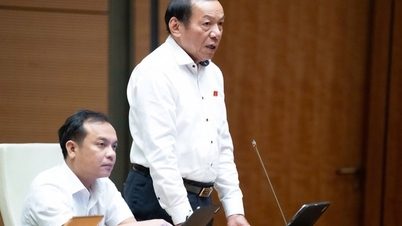
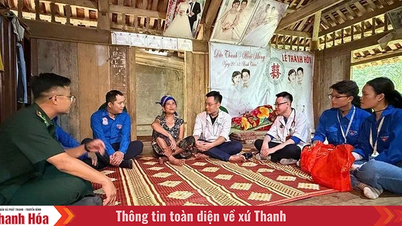

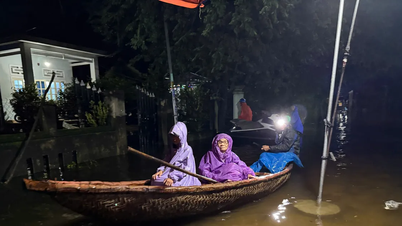





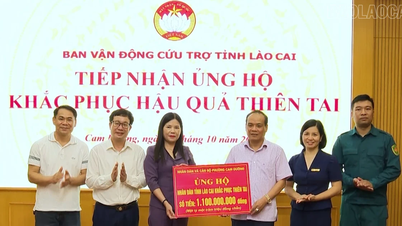

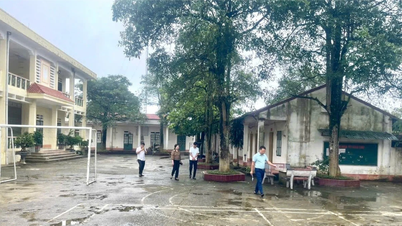










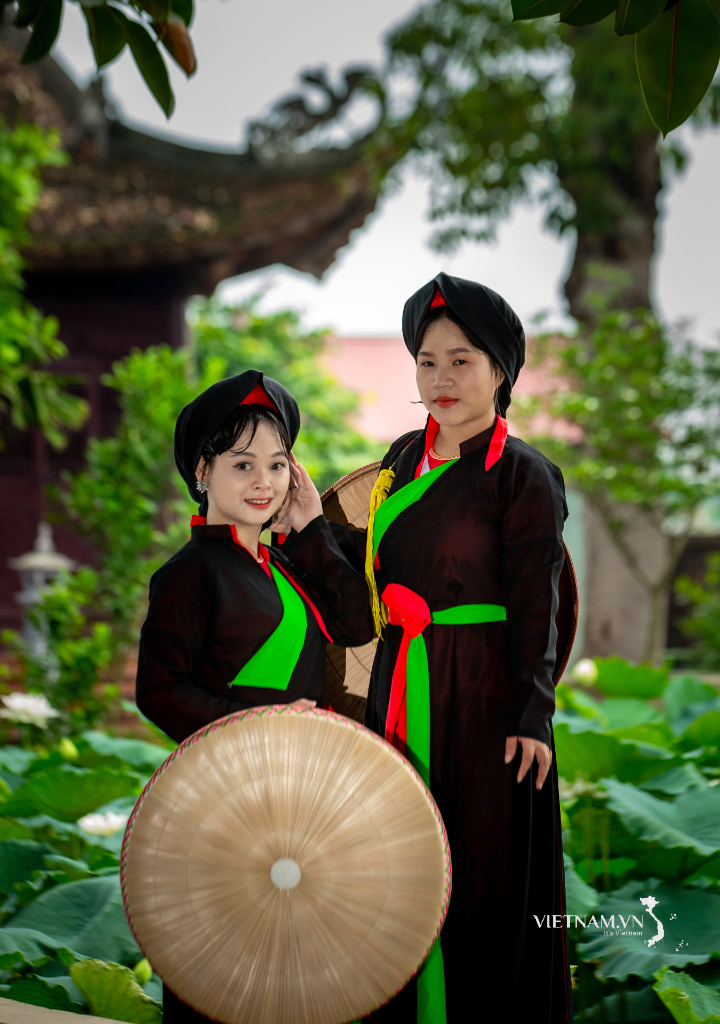



Comment (0)